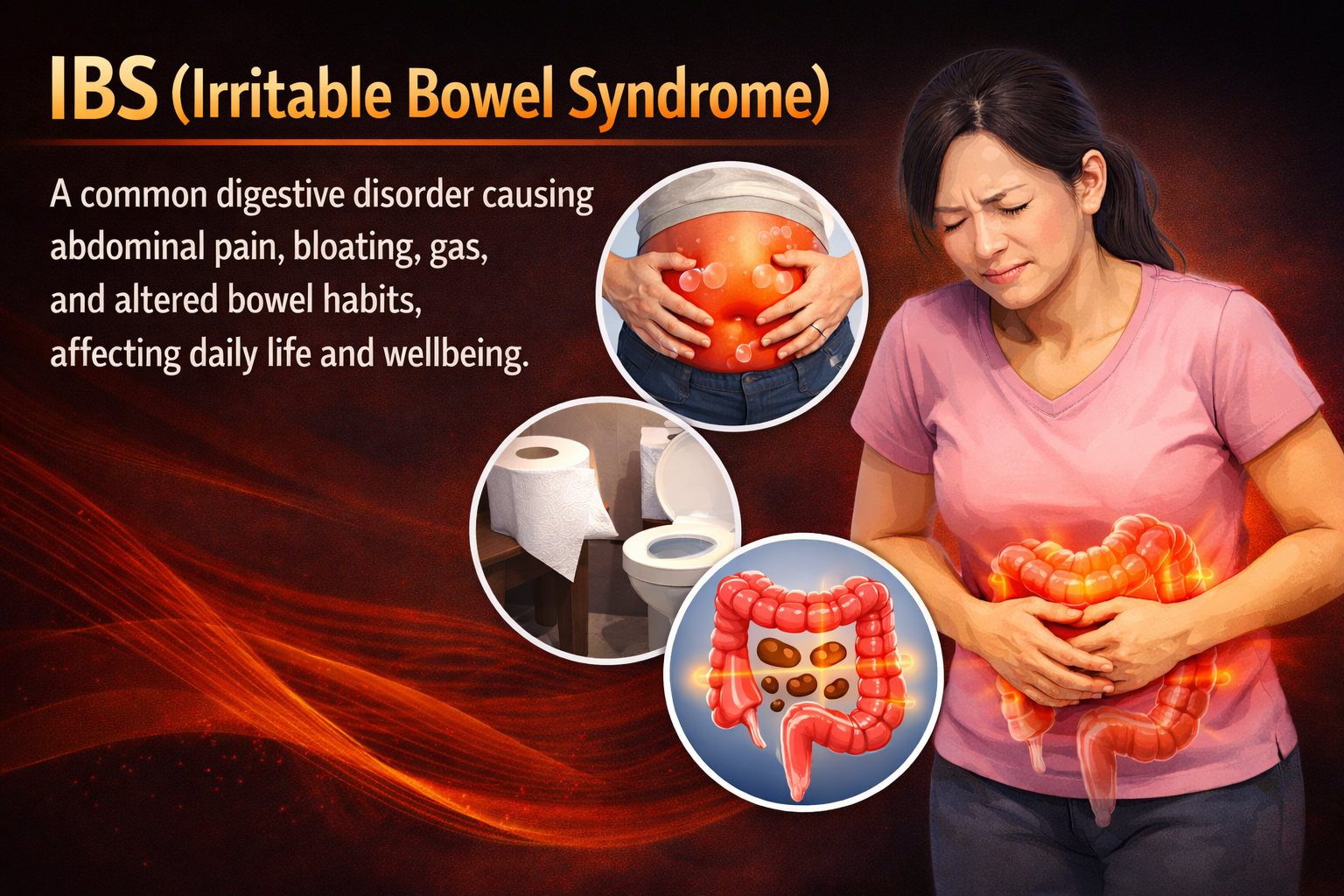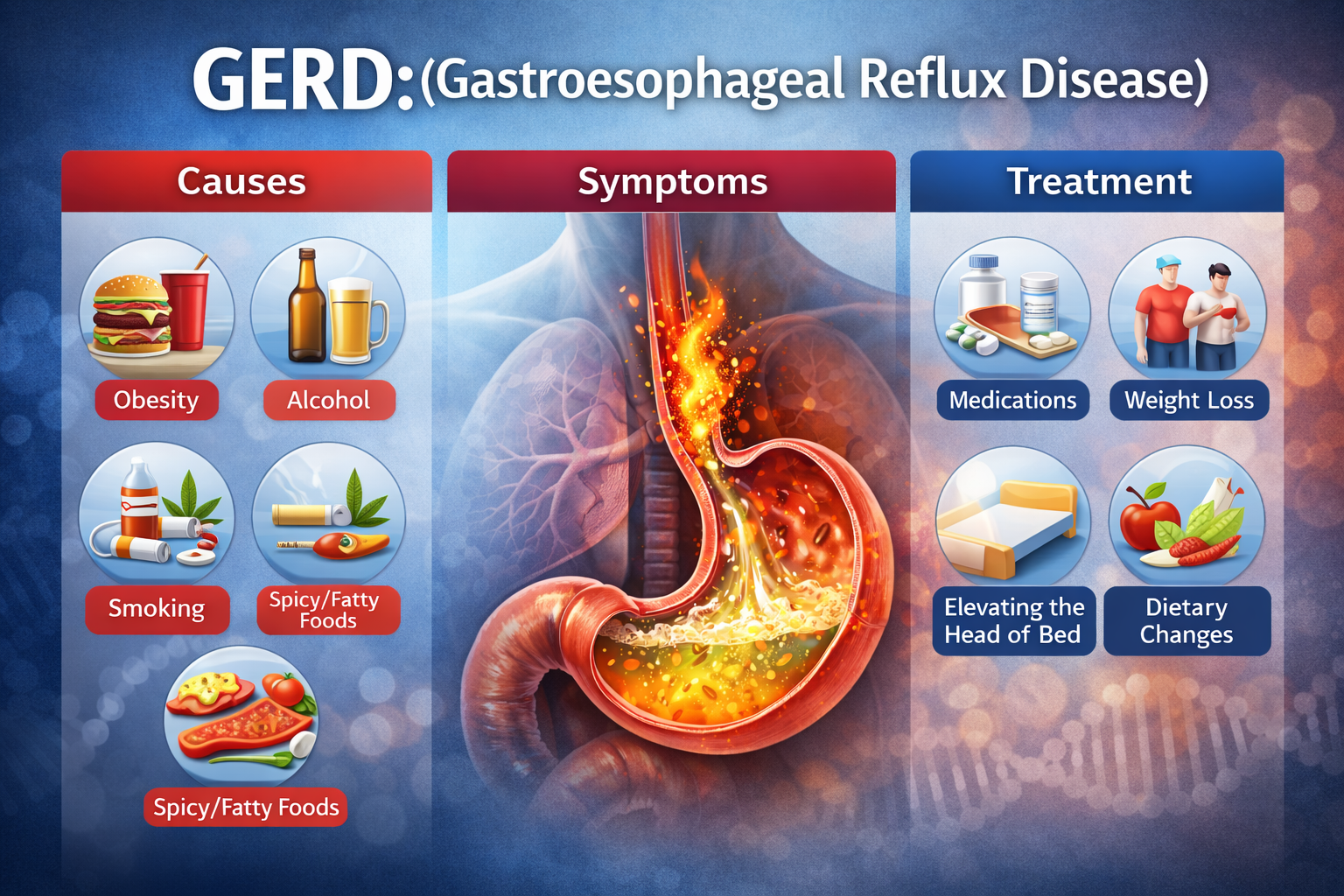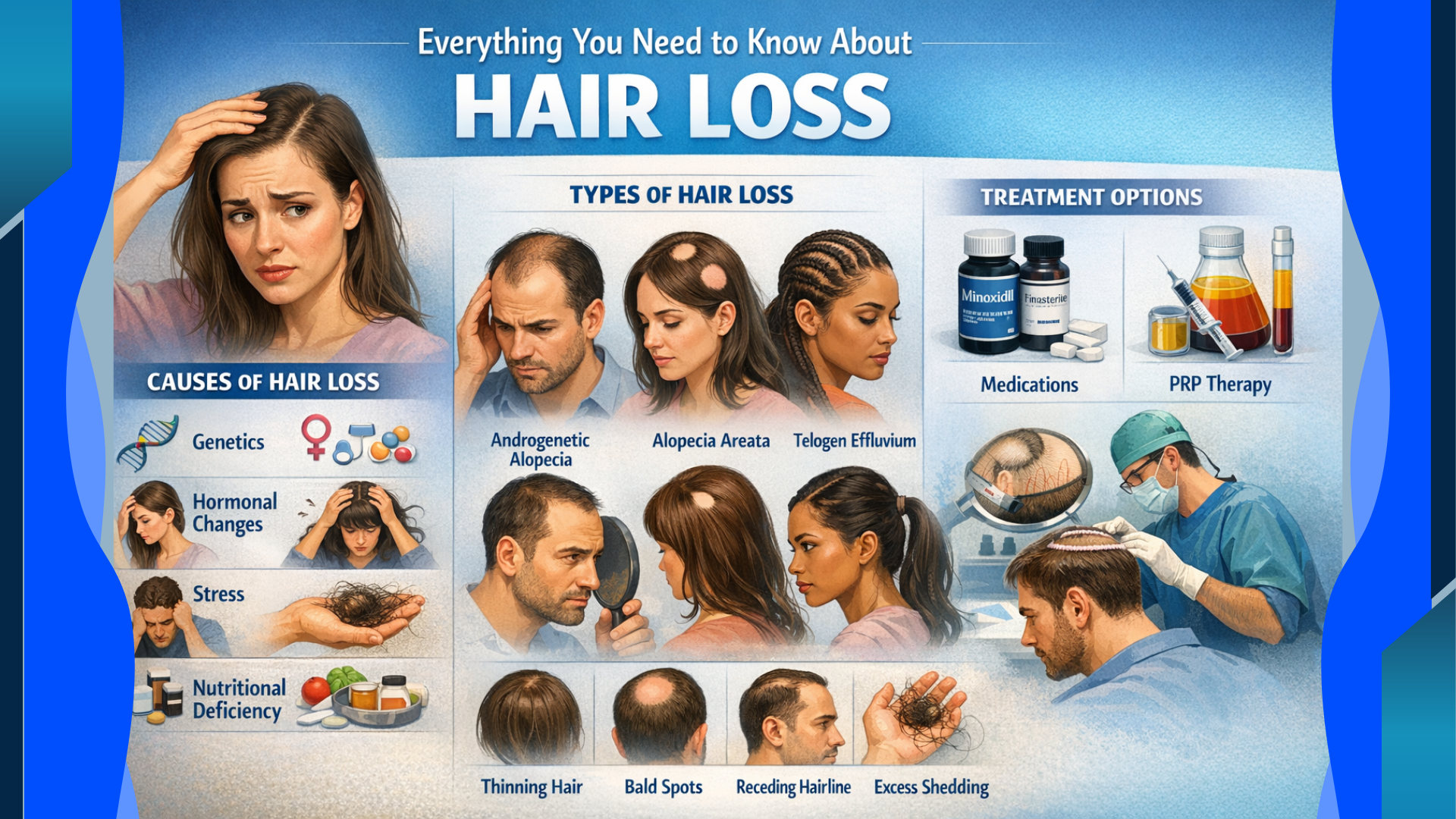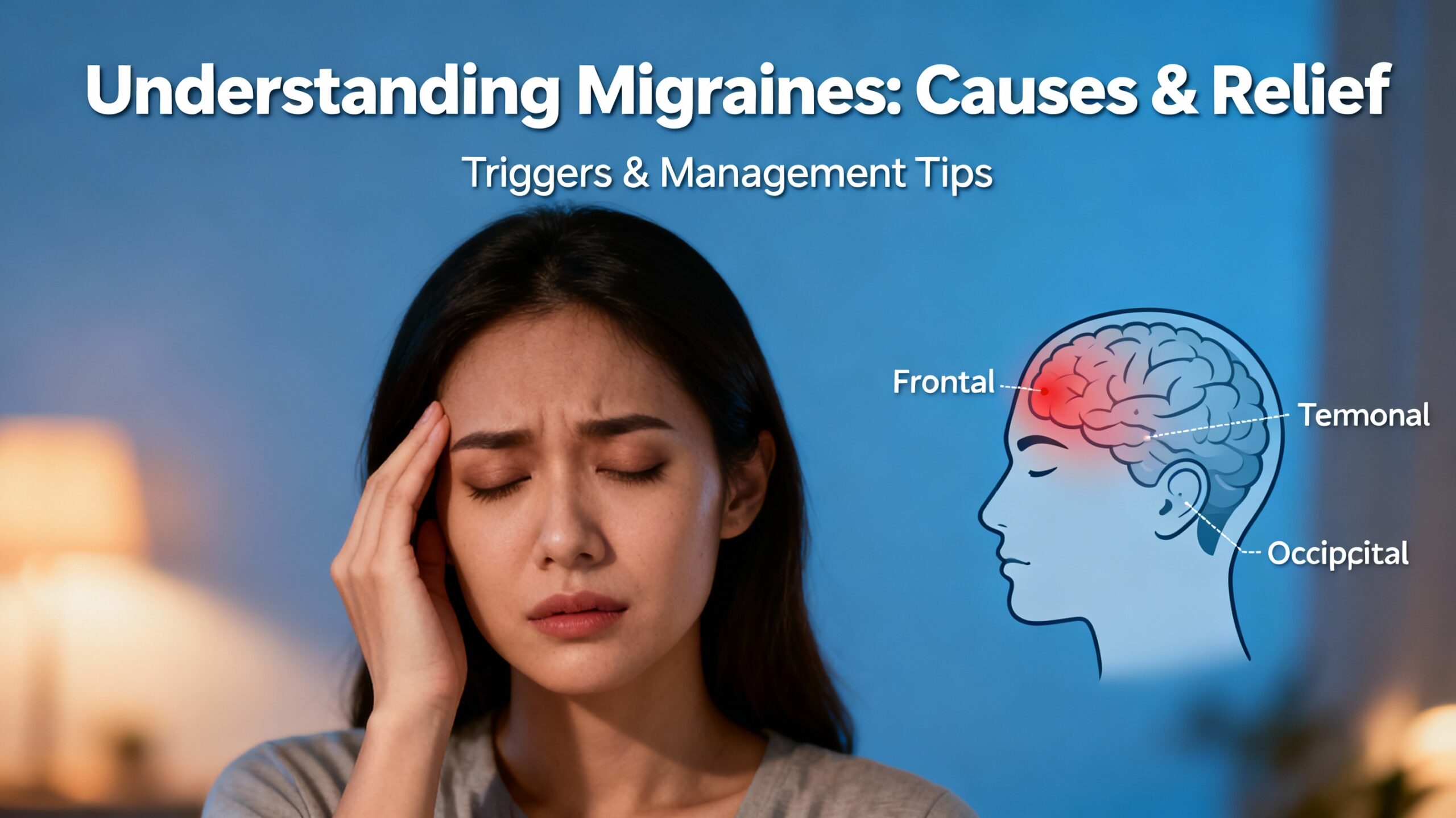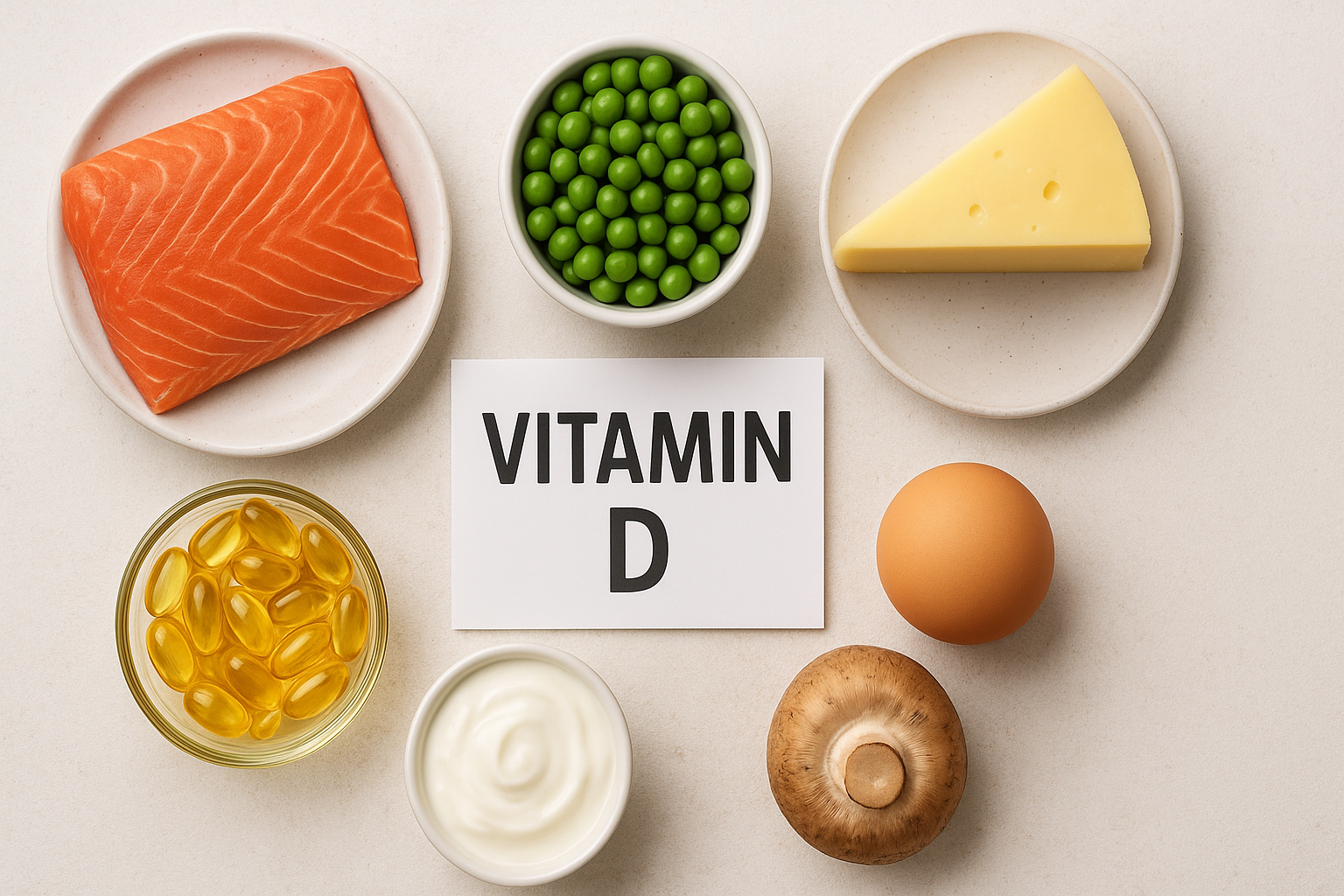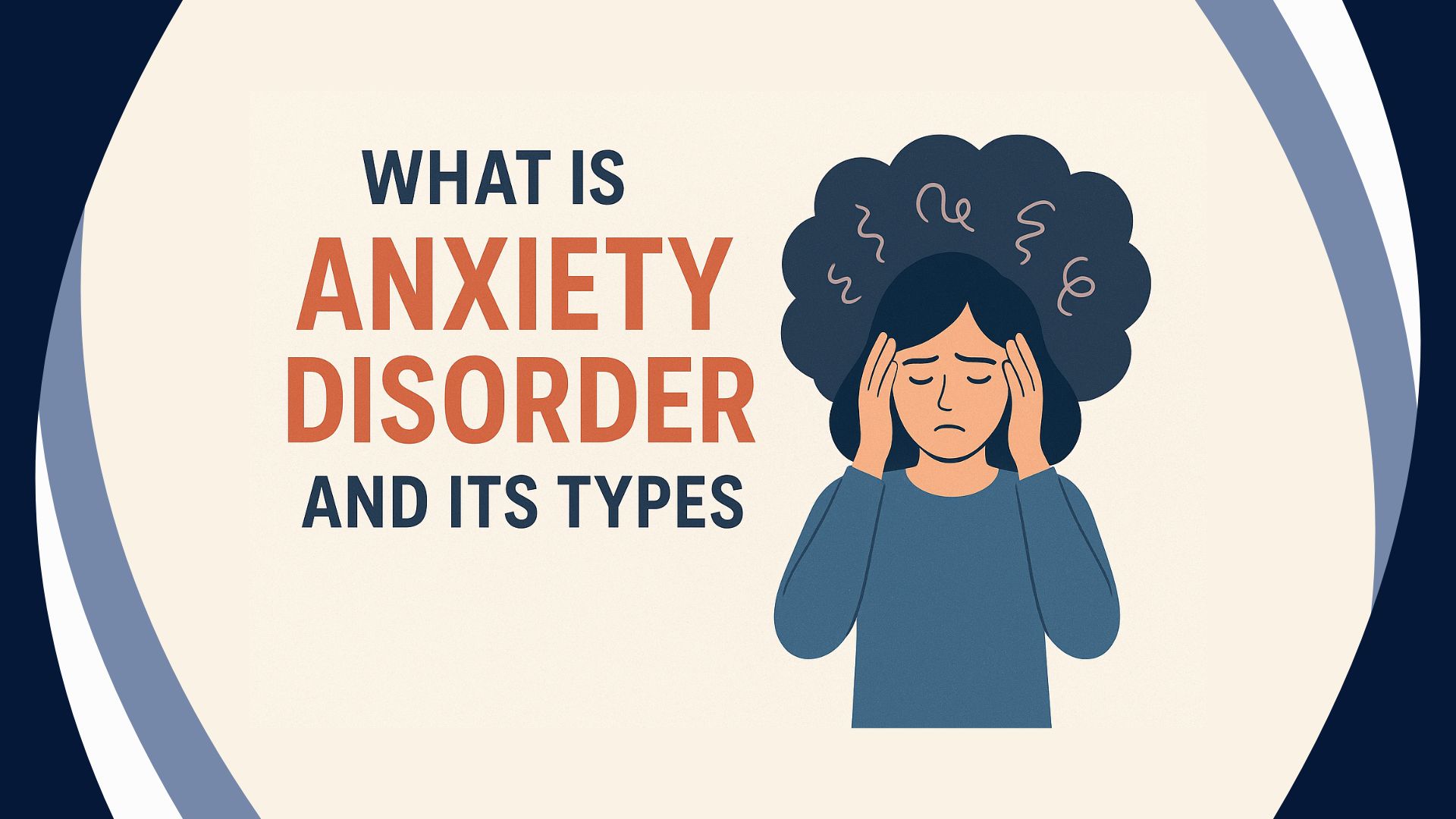Everything you need to know about Hair fall Reasons?

Hair fall or thinning hair can be caused by a variety of factors; in particular, these include genetic predisposition as well as lifestyle habits. Therefore, it is important to understand the underlying causes, as it can significantly help in finding the most effective approach to treatment and management.
Common reasons for hair fall:
1. Genetic Factors Hair fall
a. Androgenic Alopecia (Pattern Baldness):
- Men: Typically manifests as a receding hairline and thinning at the crown.
- Women:This condition is often characterised by diffuse thinning, particularly on the top of the head.
2. Hormonal Changes
a. Androgens:
- DHT (Dihydrotestosterone): Elevated levels can shrink hair follicles, leading to hair thinning.
- Polycystic Ovary Syndrome (PCOS): Can cause increased androgens, resulting in hair thinning or loss.
b. Thyroid Disorders:
- Hypothyroidism: Low thyroid hormone levels can lead to hair thinning.
- Hyperthyroidism: Excess thyroid hormone can also cause hair loss.
c. Menopause:
- Estrogen Decline: Reduced estrogen levels can contribute to hair thinning.
3. Medical Conditions
a. Autoimmune Disorders:
- Alopecia Areata: The immune system attacks hair follicles, causing patchy hair loss.
- Lupus: An autoimmune disease that can lead to hair thinning and loss.
b. Chronic Illnesses:
- Diabetes: Can cause hair loss due to poor blood sugar control.
- Cancer: Treatments like chemotherapy can cause temporary hair loss.
c. Scalp Conditions:
- Seborrheic Dermatitis: A common scalp condition causing flakiness and hair loss.
- Psoriasis: An autoimmune condition leading to thick, scaly patches on the scalp.
4. Nutritional Deficiencies of Hair fall
a. Iron Deficiency:
- Anaemia : Low iron levels can contribute to hair thinning and loss.
b. Vitamin Deficiencies:
- Vitamin D: Essential for hair follicle cycling.
- Vitamin B12: Important for red blood cell production and overall health.
- Biotin: A deficiency can lead to hair thinning.
c. Protein Deficiency:
- Amino Acids: Hair is primarily made of protein, so insufficient protein intake can impact hair growth.
5. Lifestyle Factors

a. Stress:
- Telogen Effluvium: Stressful events can push hair follicles into a resting phase, leading to increased shedding.
- Emotional Stress: Major life changes or trauma can cause temporary hair loss.
b. Poor Hair Care Practices:
- Excessive Heat: Frequent use of hairdryers, curling irons, or straighteners.
- Chemical Treatments: Frequent colouring, perming, or relaxing can weaken hair.
- Tight Hairstyles: Styles that pull on the hair, like ponytails or braids, can lead to traction alopecia.
c. Smoking and Alcohol:
- Smoking: Can restrict blood flow to hair follicles, leading to hair thinning.
- Alcohol: Excessive drinking can deplete essential nutrients and lead to hair loss.
6. Medications and Treatments of Hair fall
a. Prescription Medications:
- Antidepressants: For instance, can cause hair loss as a side effect.
- Anticoagulants: Blood thinners, on the other hand, may lead to hair thinning.
- Hormonal Medications: Hormonal Medications such as birth control pills or hormone replacement therapy can also impact hair growth.
b. Over-the-Counter Medications:
- Certain Painkillers: Extended use of some pain reliever
Management and Treatments of Hair fall:
1. Lifestyle and Dietary Changes:
- Balanced Diet: Ensure you’re getting a range of nutrients. Include:
- Proteins: Lean meats, eggs, legumes, and nuts.
- Iron: Leafy greens, beans, and fortified cereals.
- Vitamins: A, C, D, and E, found in fruits, vegetables, and supplements.
- Omega-3 Fatty Acids: Fish, flaxseeds, and walnuts.
- Hydration: In order to support overall health, it is essential to drink plenty of water.
- Stress Management: Engage in activities like meditation, exercise, or hobbies to reduce stress.
2. Hair Care Routine:
- Gentle Shampoo: To begin with, use a mild shampoo that is suitable for your specific hair type. Additionally, make sure to avoid washing your hair with hot water, as this can be harsh on your strands.
- Conditioner: Use a conditioner to keep hair moisturised and reduce breakage.
- Avoid Heat and Chemicals: Limit the use of hair dryers, curling irons, and chemical treatments.
- Regular Trimming: Get regular haircuts to prevent split ends and breakage.
3. Over-the-Counter Products:
- Minoxidil: FDA-approved topical treatments that promote hair growth and are available without a prescription.
- Shampoos and Conditioners: Look for products containing biotin, keratin, or other hair-strengthening ingredients.
4. Prescription Medications:
- Finasteride: An oral medication for men that reduces hair loss by inhibiting the hormone DHT.
- Spironolactone: Sometimes prescribed for women to treat hair loss related to hormonal imbalances.
Medical Treatments:
- Platelet-Rich Plasma (PRP) Therapy: Involves injecting your own blood’s platelets into the scalp to stimulate hair growth.
- Hair Transplant Surgery: It is a procedure in which hair follicles are moved from one part of the scalp to another, providing a solution for hair loss.
Natural Remedies:
- Essential Oils: Oils like rosemary or peppermint may help with hair growth. Dilute and massage into the scalp.
- Aloe Vera: Can soothe the scalp and condition hair.
- Massage: Scalp massage can improve circulation and promote hair growth.
Consult a Professional:
- Dermatologist: For a thorough examination and diagnosis. They can help identify underlying conditions and recommend appropriate treatments.
- Trichologist: A specialist in hair and scalp issues who can provide tailored advice and treatments.
